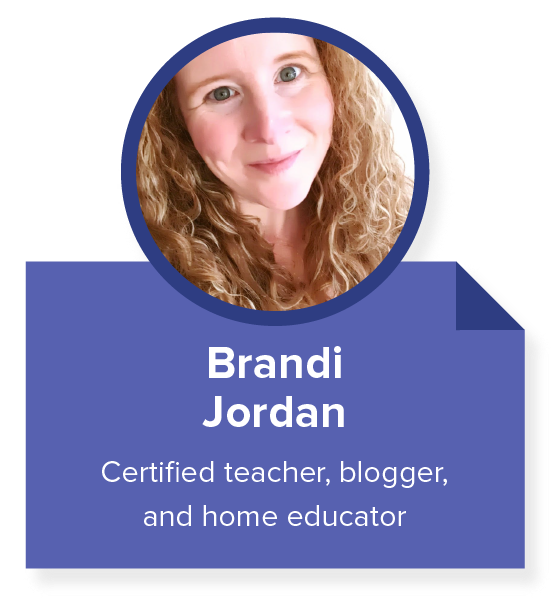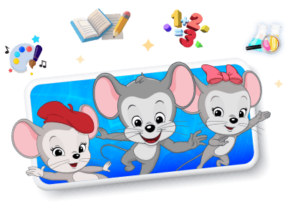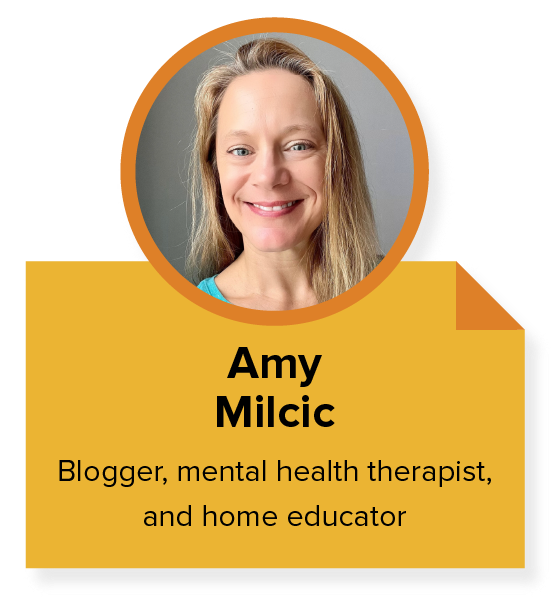
Am I Qualified to Teach Homeschool?
Experienced home educators share insights on a question many homeschoolers ask on their journey.
Build a Learning Relationship
My answer to this question is always a resounding “Yes!” I believe that the only qualification for homeschooling is a drive to find what works for your child–that is the key to overcoming all the obstacles.
We all have subjects where we feel our knowledge is not enough. But homeschooling is not at its finest when we stand in front of our kids expounding our knowledge. Homeschooling is most beautiful and natural when we model the act of learning for and with our children.
So, that might mean you come to the kitchen table to teach chemistry knowing nothing about it. By your very admission of that, you are opening doors of connection with your child. Then, together, you explore the world of chemistry: reading, watching videos, doing messy experiments, even hiring a tutor—all perfectly acceptable paths forward.
Teaching degrees and certifications qualify classroom teachers. That is a profession. Homeschooling is based on building a learning partnership with your child. That is a relationship. Caring is qualification!


You Don’t Need to Know It All
The short answer is yes, absolutely, you are qualified to teach homeschool! Imposter syndrome is very real, but rest assured that many other home educators are thinking and worrying about the same things. Questions like “Am I qualified to teach homeschool?” and “Can I really do this?” naturally arise when you start homeschooling. The answer to both of those questions is this: Yes.
A teaching degree is not required to homeschool in the majority of states. For many states, the main or only requirement for teaching homeschool is to be an adult with a high school diploma. If that’s you, then you are qualified!
Admittedly, homeschooling preschool and lower elementary ages is less intensive than high school, but there are supports and resources that can help you no matter what grades you’re teaching. You do not have to go it alone, and I highly recommend that you do not. Use the resources and homeschool community available to you to make things easier.
The most important thing to remember is that you don’t need to know it all before you start homeschooling. All home educators learn things along with their kids as they prepare lessons and get ready to teach. If you have an open mind, are willing to learn and try new things, and have a positive outlook, you can homeschool!


Support Your Homeschool with ABCmouse and Adventure Academy
Our digital learning programs are designed by curriculum experts to assist your homeschool and children ages 2 through 13. ABCmouse is a comprehensive online educational platform for children ages 2-8, while Adventure Academy focuses on children ages 8-13. Both programs provide access to lessons on reading, language arts, math, sciences, social studies, and more. Learn more about how each program can enhance your homeschool below.
ABCmouse and Homeschooling
ABCmouse offers over 10,000 learning activities and more than 850 lessons for children, plus a large digital library of books and educational puzzles, songs, activities, and worksheets. The program encourages self-paced learning with motivating rewards and includes progress tracking, which allows home educators to monitor time spent on certain subjects and the number of activities completed.

Then just $14.99/mo. until canceled
As a paid add-on to regular subscriptions, home educators can access the Assessment Center, which allows parents and caregivers to test children on their knowledge, determine successes and struggles, and receive recommended lessons based on assessments.
ABCmouse provides a robust curriculum that can supplement other early learning lessons. It’s trusted resource that’s been downloaded over 10 million times and has a 4.5-star average out of 831.4K ratings.
Adventure Academy and Homeschooling
Adventure Academy combines an interactive world with a curriculum covering reading, language arts, math, science, and social studies. With quests, games, and educational videos and activities, learning becomes an epic journey that motivates kids to explore various topics.
For homeschooling families, Adventure Academy offers an engaging, flexible learning experience that can supplement other educational materials. The program features thousands of activities created by curriculum experts and covers all major academic domains.
Parents and caregivers can choose academic difficulty levels and track each child’s progress, seeing time spent in Adventure Academy, activities completed, and subjects studied.
Adventure Academy emphasizes key topics such as reading comprehension, vocabulary development, mathematical operations, fractions, world geography, American history, physical science, life science, earth science, and scientific inquiry.
For more information, visit AdventureAcademy.com.
You Are Most Invested in Your Child’s Education
When the idea of homeschooling first entered my mind, I was plagued by self-doubt. Like many parents, I believed that only trained school teachers were qualified to teach my kids. When I confessed this concern to a homeschooling friend, she pointed something out to me–I was already my child’s teacher. I realized she was right.
We are our children’s first teachers. We teach them so much, including how to eat, sleep on a schedule, get dressed, brush their teeth, and learn an entire language. Wow!
A great teacher helps children learn. They don’t always have all the answers, but they know how to get the answer. And as a homeschooler, no one is more invested in my child’s education than I am. I may not know all the answers or be able to teach every subject or every concept, but I can find someone or something that can–i.e., an online class, a video lesson, a tutor, a book, or something else.
What qualifies a person to teach? Is it vast knowledge of a subject? Or passion? Either way, no one knows your child better than you. What qualifies me to teach my children is my deep desire to help them learn, discover their passion, and succeed in their chosen career. My job is to oversee their education, identify where they’re struggling, and watch them grow. I am the best person to do that for my children, just as you are the best for yours.


Don’t Box Yourself In
I recommend doing two things to learn the requirements to teach homeschool in your state. First, ask local homeschoolers about their experiences. Then, do an online search to verify their information.
When I began homeschooling, I was petrified because I thought you had to have an education degree to effectively teach kids. My background is in psychology and mental health. How in the world would I be able to teach my boys? I never learned how to write lesson plans or discipline a class. I quickly discovered that those skills are not necessary. In fact, I’m glad I wasn’t boxed into that type of educational approach.
To be a homeschool educator, I believe that your relationship with your kids is the most important. Your love and concern for their overall well-being (including physical, mental, and emotional health) places you in an amazing position to educate your children at home. With time and practice, you develop the skills and mindset you need, like patience, flexibility, and creativity.
One of the most important abilities a home educator has is to say, “I’m not familiar with that yet–let’s learn about it together!” You do not have to have all the answers. It’s perfectly fine (in fact, I highly recommend it!) to learn right along with your kids. You have many online resources to consult and enjoy on your learning adventures at home.


Quick Tips About Qualifications for Teaching Homeschool
- Learn your state’s qualifications for teaching homeschool.
- Ask other homeschoolers about qualifications and research them.
- Use resources in your community to help with teaching.
- It’s okay to hire a tutor.
- Admit when you don’t know the subject matter or an answer to a question.
- Enjoy learning along with your child.
- Remain committed to understanding and providing what your child needs.
- Time and practice help build the skills you need.
More from ABCmouse:
-
Tennessee Homeschooling Laws
Tennessee Homeschooling Laws and Resources Tennessee has a variety of homeschooling options and requirements. Our comprehensive guide offers insights on Tennessee homeschool laws and shares other…
-
Illinois Homeschooling Laws
Illinois Homeschooling Laws and Resources If you’re considering homeschooling in Illinois, you’ll find some helpful information in this guide, including homeschooling laws and requirements as well…
-
Waldorf Homeschooling
Discover the holistic approach of Waldorf homeschooling, which nurtures creativity, hands-on learning, and holistic child development. Learn how to integrate art, nature, and rhythm into your…
-
Traditional Homeschooling
Explore the structured “school-at-home” approach of traditional homeschooling, where parents guide learning using textbooks, workbooks, and online resources. Learn how to homeschool multiple children, manage time,…
-
Unschooling
Unschooling is a child-led approach to homeschooling that encourages learning through everyday experiences and personal interests. With no set curriculum or tests, it allows flexibility and…
-
Classical Homeschooling
Classical homeschooling draws from ancient educational models, emphasizing critical thinking through the study of classical languages, literature, and history. Learn how its three-stage approach—grammar, logic, and…







